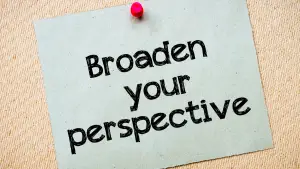Editorial Note: This article about sociology and nursing is being published on behalf of Applied Worldwide’s student essay competition. Students were prompted to respond to the question, “Why is sociology important?” We have awarded 16 finalists from all over the world, and will publish these essays over the next several weeks. This essay on sociology and nursing was written by Chloe Violette from The University of Tampa in Florida, US.
This essay received a first place award. We had a really great turnout and would like to thank everyone who submitted an essay. We received a wide variety of creative interpretations and responses, so browse our essay directory!

Chloe Violette: Sociology and Nursing
One day in 2016, while doing a ride along with Empress in Brooklyn as an EMT trainee, my partners and I received a call to a nearby low-income housing facility for an adult Hispanic male with an altered mental status and a profuse head bleed. After introducing myself and beginning to tend to his wound, the patient looked me straight in the eyes and repeatedly pleaded, “dinero, dinero.”
He did not want help because he knew how expensive his transport in the ambulance would cost. My partners did not have any experience using Spanish, so I was given a unique opportunity to speak with this patient and understand why he did not want transport. This individual did not want to be transported so that he could continue to provide for his daughter. I had learned skills, I had learned assessment, I had learned anatomy and pathophysiology, and yet just as life takes you for turns, so did that ride along.
Socioeconomic Status and Medical Care
Back then, when I was fresh out of high school, I had never personally experienced someone not wanting medical care for financial reasons before that day. I had never worried about if my parents could afford my antibiotics when I was sick, or if they could afford an ER visit when I broke my arm. I had always known that medical care was expensive, but growing up in Pleasantville, New York, I had truly not spent much time imagining someone denying necessary care for themselves because he or she could not afford it. I simply had not been exposed to it. My heart broke for him that day.
Ever since then, at The University of Tampa, I have been wholeheartedly devoted to learning about social stratification and providing care for those who, with the cards they are sometimes dealt by society due to external forces outside of their control, may not be able to afford it. In my eyes, no one should ever have to wonder, “Will I eat or will I pay for my medication,” especially in the United States of America.
Sadly, however, this question is asked by many Americans in our own backyard. Paul Farmer, an American anthropologist and physician put it best when he said, “The idea that some lives matter less is the root of all that is wrong with the world.”
Sociology and Nursing
I began my journey at the University of Tampa as a biology major, taking solely biology and chemistry courses. Of course, these classes are critical to becoming a well learned nurse, but they fall short. I had not taken a single course related to human beings unless I actively sought them out beyond my major.
This experience left a very sour taste in my mouth. There were no courses on caring for people or even about people. I feel that is the very basis for medical treatment, and everything else should come next. Everything changed for me when I took my first ever sociology course – introduction to sociology. I became a sociology major for this reason exactly. I learned that I could become a great nurse and a household name in the homes of many with an undergraduate degree studying sociology.
I became enamored by learning about systematic inequality and how to change it, especially in the health care field. As a nurse and eventual nurse practitioner, I will bring forth an immense amount of cultural competency I have gained through my sociology major.
Sociology and Empathy
I believe everyone should study sociology, especially if endeavoring into the health care field. Through my education, I believe I am spilling over with empathy for people from all walks of life. Empathy by definition is the ability to understand and share feelings of another.
Synonyms of this term are ‘affinity with’, ‘rapport with’, ‘understanding of’, and ‘togetherness’ to name a few. For this reason, I cannot think of a better quality in a nurse. I understand how identities intersect and how cultures impact health and decision making. This is essential to giving complete, patient-centered care. I mean, how could you without understanding the fundamental causes of health inequalities? Different cultural beliefs and values influence a patient’s view of health, wellness, care, acceptance of and adherence to treatment, and even death.
I cannot think of another major that truly challenges you to look outside of yourself and makes you a better person. When we do not deal with disparities, then what we are doing is denying people an opportunity to give back to the world.
My Final Thoughts on Sociology and Nursing
I want to be a nurse because health is everything. You have nothing if you do not have your health. You cannot do the things that matter. You cannot help other people. All of the best experiences I have had in my lifetime are because I have been lucky enough to be healthy and because of my opportunities I have been given.
I want other people to be able to see the beautiful sights I have seen, feel the warmth of the sun on their face like I have felt, and have the opportunity to make a difference and touch people’s lives like I have had the privilege to, through studying sociology.







